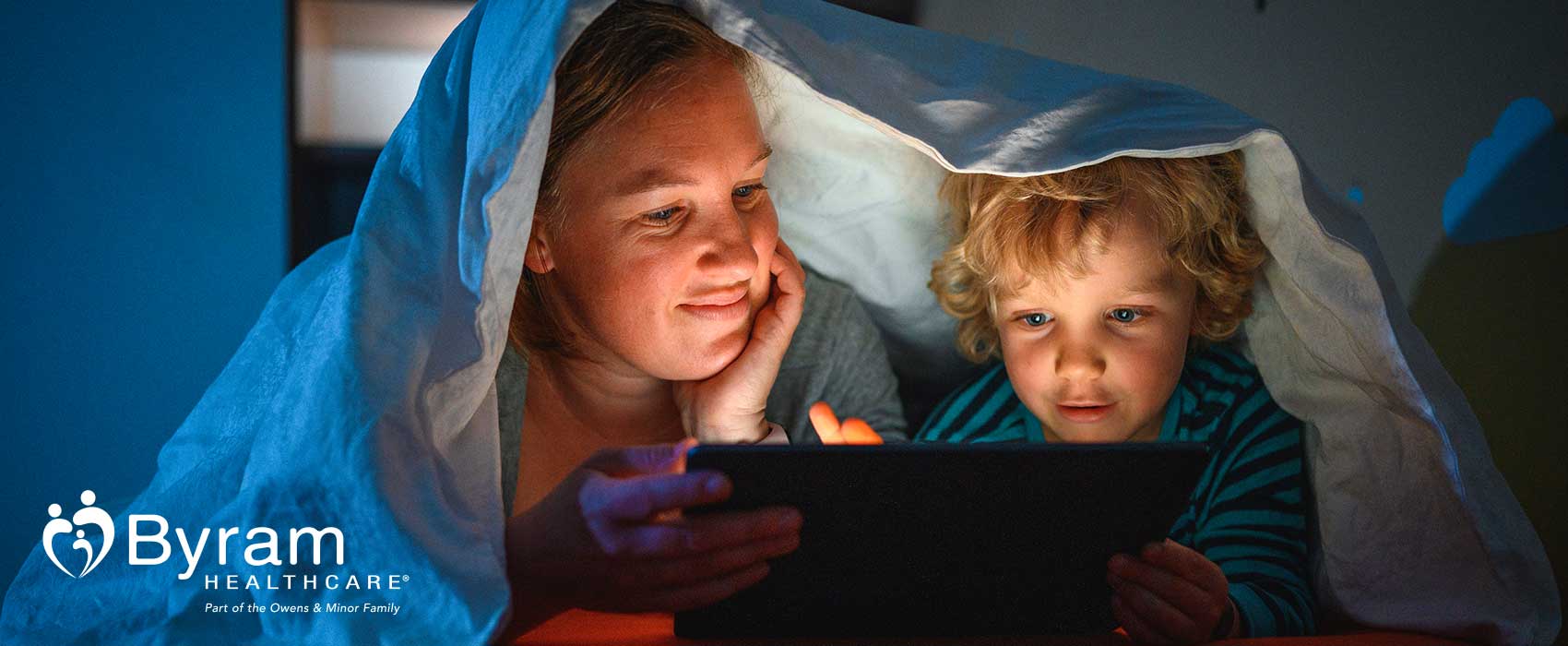
As children begin to age, one thing that continues to be a concern for parents is bedwetting. Bedwetting, also known as nocturnal enuresis, is a medical term that’s characterized by either voluntary or involuntary urination while children are sleeping. This term only applies to children over the age of five who wet the bed at least twice a week for three months or longer. Bedwetting in young children is common due to developing urinary tract systems and voluntary muscle reactions. As children get older, they tend to outgrow bedwetting. By age five, only about 20% of children wet the bed, by age eight, about 6% to 10% of children wet the bed, and without treatment, there are about 2% of children that still wet the bed at 15-years old. To help reduce these incidents and ensure that there’s no medical cause for the habit, it’s important to play an active role in treatment. Here’s how to help your children overcome bedwetting.
9 Ways to Overcome Bedwetting
Unfortunately, there are a lot of misconceptions that surround bedwetting. Some people assume it’s because the child is lazy or they want to spite their parents, but that is almost never the case. On the contrary, bedwetting is usually due to developing urinary tract systems. It also tends to be more prevalent in children who have family members who wet the bed. There is a genetic pattern in bedwetting, so if it runs in the family there’s no reason for immediate concern. Children who have bedwetting in the family tend to stop around the same time as their parents. Be patient and do what you can by using these 9 ways to overcome bedwetting.
- Limit Fluids at Night
While you shouldn’t completely restrict fluid intake at night, try to shift your child’s drinking pattern so that they consume more liquids earlier in the day. This will help limit the amount of urine buildup in their bladders before going to sleep and therefore, reduce the chances of bedwetting incidents.
- Avoid Excessive Thirst
In conjunction with limiting fluids at night, avoid having your child feel excessively thirsty throughout the day or evening. If your child is able to drink small amounts of water throughout the day, they’ll begin to develop better bladder control and understand bathroom cues more regularly. Plus, drinking enough water throughout the day will eliminate the need for excessive amounts of liquids after school, thus helping with fluid limitation before bed.
- Create a Bathroom Schedule
Sometimes children will do everything they can to avoid going to the bathroom, especially when they’re in the middle of something captivating. Schedule bathroom breaks throughout the day and make sure that they’re actually taking them. This can help your child improve regularity of urination and avoid accidents during the day or night.
- Be Positive
It takes time for children to learn how to properly control their bladder, so one of the best things you can do is stay positive and encourage good habits for your children. Reacting poorly or with negative attitudes can intensify problems and lead to bedwetting caused by psychological stress, so regardless of how inconvenient it is, try to keep a positive mind and continue to do what you can to help.
- Reduce Irritants
Certain foods and beverages can irritate the bladder and increase the risk of bedwetting. Try to eliminate any bladder irritants, such as chocolate milk, citrus juices, artificial flavors and dyes, and sweeteners. Many additives in children’s drinks and foods irritate the bladder and worsen urologic conditions.
- Let Them Sleep
Don’t try to randomly wake your child up in the middle of the night to use the bathroom. This can lead to sleeping problems and a general sense of frustration for both parents and children. However, while you should avoid waking your child up at intermittent periods throughout the night to use the bathroom, many parents have found success with bedwetting alarms. Bedwetting alarms are attached to the pajamas or underwear of a child and alerts a child when wetness or moisture is detected. Children who are deep sleepers may need help adjusting to this alarm, but the International Children’s Continence Society recognizes these tools as an effective way to help reduce bedwetting over time. Talk to your pediatrician about whether your child is a good candidate for bedwetting alarms.
- Try an Earlier Bedtime
Some children wet the bed because they’re in such a deep sleep that they don’t notice their bladder cues. This could be caused by a lack of REM sleep during the week. To help combat bedwetting due to extreme fatigue, try an earlier bedtime to see if that helps.
- Never Use Punishment
While you might be frustrated at your child’s bedwetting problem, never resort to punishment. Punishment does not help your child control their bladder and can actually increase psychological stress, which in turn increases the risk of bedwetting. Pediatric catheterization is also not recommended for use to help treat and manage bedwetting. However, catheterization may be necessary to treat underlying medical conditions that are causing bedwetting, so discuss any questions or concerns with your doctor.
- Medications
While medications are not the preferred way to address bedwetting, there are options to help. One medication that’s been historically used to treat bedwetting is called desmopressin acetate (DDAVP). This medication won’t stop the underlying cause of bedwetting, but it’s effective when taken. Many parents choose to utilize DDAVP for special circumstances such as sleepovers or camp, but DDAVP can cause mild side effects and should only be used with a prescription. DDAVP should not be used long-term as it’s essential that you discover what’s causing the bedwetting to address underlying conditions.
When to See Your Doctor
Some children are more likely to wet the bed because of the size of their bladder and inability to recognize fullness cues. These tend to get better as children age. Therefore, bedwetting is fairly normal in younger children as their urinary system develops and they gain more voluntary control of their bladder. However, in some instances, bedwetting can be indicative of a medical problem. If your child is still wetting the bed past the age of seven or has recently begun wetting the bed again after a year or so without incident, talk to your doctor or your child’s pediatric urologist. This could be a sign that there is something else happening, which needs to be addressed. Some common medical conditions that are associated with bedwetting include sleep disorders, urinary tract infections, constipation, psychological stress, or other serious medical conditions.
Sleep Disorders
Certain sleep disorders, such as obstructive sleep apnea, can increase the prevalence of bedwetting in children. This is because the brain is focused on breathing and therefore, tends to pay less attention to controlling other bodily functions such as bladder control. Sleep apnea can also cause bedwetting in adults.
Urinary Tract Infections (UTIs)
Urinary tract infections can cause a range of symptoms in both children and adults. Since many children may not understand these symptoms, UTIs can go unnoticed and undiagnosed. However, UTIs often lead to an inability to control urination in children, therefore may cause bedwetting as well as daytime accidents. If your child begins bedwetting after periods of dryness and shows other symptoms of a urinary tract infection, getting the proper treatment is essential.
Constipation
Constipation can reduce the efficiency of the muscles used to control urine and stool elimination, thus increasing the risk of bedwetting in children. If you think your child may be constipated, talk to your child’s pediatrician about how to improve bowel movements.
Psychological Stress
Sometimes, bedwetting is triggered by stress or familial changes. This includes both negative and positive changes that may uproot your child’s routine or psychological processing. If you’ve recently had a new baby, changed bedtimes, or notice your child changing their behaviors while awake, consider talking to a child psychologist to help address the issues. There is absolutely nothing wrong with childhood therapy, especially if it helps your child to process things in a healthy manner.
Serious Medical Conditions
In very rare instances, bedwetting can be a symptom of an underlying medical condition. Some conditions that have been associated with bedwetting include diabetes, spinal cord injuries or issues, and metabolic issues. Again, these are very rare, but worth undergoing testing when bedwetting persists for no apparent reason.
If your child continues to wet the bed, especially after the age of seven, it’s important that you call your doctor or pediatrician. Bedwetting is considered a pediatric urinary issue that requires ongoing testing to ensure that there are no serious medical conditions causing the accidents. To assist you along your journey, Byram Healthcare has several products and resources to help ensure that your child has what they need to overcome and treat any urinary issues that arise. Our mission is to help improve health outcomes and affordability of care for adults and children living with chronic diseases.




